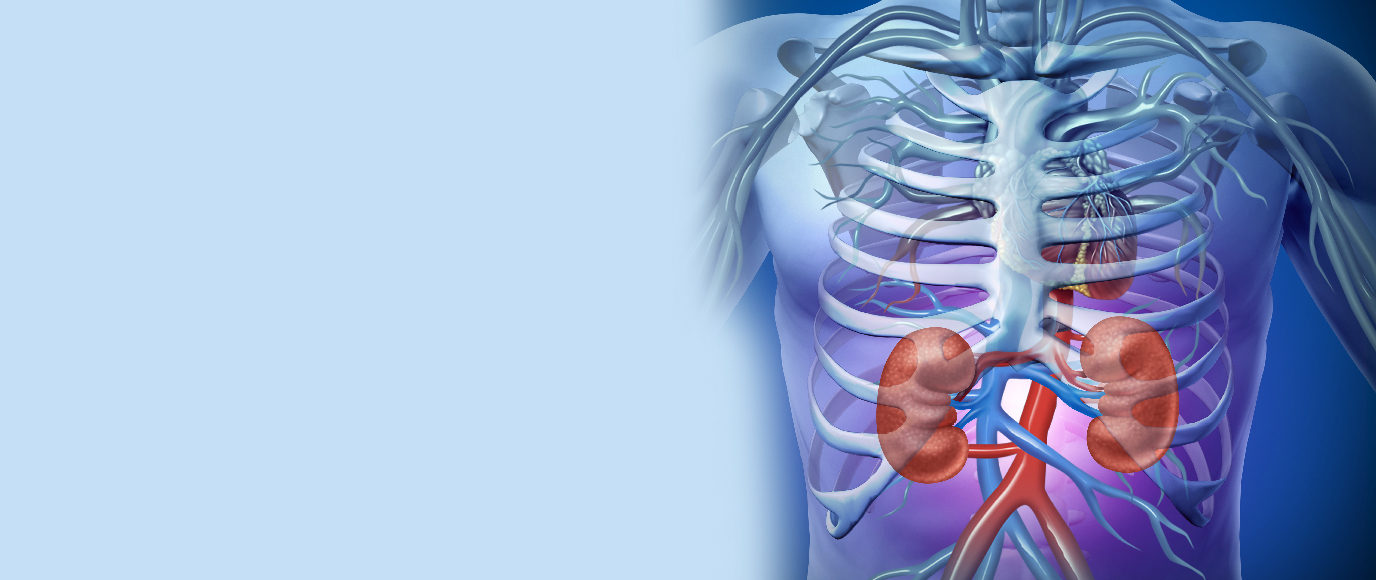The kidney is an elementary component of the human body. A body cannot function without its kidneys as it is a pivotal part of our excretion system. The kidney plays a huge role in removing toxins from the body and excretes waste products through the excretory system. Over time, our kidneys may stop functioning in the sense that they may not be able to bifurcate toxins from blood or excessive fluids. In such scenarios, toxins may enter into the bloodstream which can lead to further illnesses or even death in extreme cases. The damage done to the kidney, if causing long-term repercussions, is known as a Chronic Kidney Disease (CKD). In this blog, we will talk about how to detect Chronic Kidney Diseases, its risks, factors that affect it, complications that may arise, its stages, lifestyle amendments you can make, and kidney disease treatment for it.
Symptoms of Chronic Kidney Disease
Chronic Kidney Diseases can have long-lasting effects on our body which makes it crucial to detect the early signs and symptoms of having CKD, to manage it better. Given below is the list of common symptoms noted in the patients:
- Muscle cramps
- Nausea and vomiting
- Breathlessness
- Trouble in sleep or insomnia
- Loss of appetite
- Trouble in passing the urine (too much or too little)
- Swelling of feet and ankles
- Fatigue and weakness
- Hypertension
- Itching
- Loss of memory
These symptoms are commonly observed by experts. If you’re feeling most of them and have reason to believe that you may have a kidney problem, then you should get your kidneys checked as soon as possible.
Risk Factors Associated with Chronic Kidney Diseases
It is crucial to understand the risk factors that are associated with CKD, in order to better manage and prepare for any potential diseases. The most common risk factors are mentioned below:
- Recurrent urinary tract infection and obstruction
- Age
- Polycystic kidney disease
- Chronic glomerulonephritis
- Cardiovascular disease
- Diabetes mellitus
- Hypertension
- Smoking
- Obesity
- Family history of kidney disease
Chronic kidney diseases have an impact not only on the kidney but also have negative effects on other body parts like the heart, lungs, liver and urinary tract amongst others.
Factors That Can Cause Chronic Kidney Diseases
Now that we know what a chronic kidney disease is, what its symptoms are and its associated risks, knowing how chronic kidney diseases are caused internally can shed light on preventing it further altogether. Chronic kidney diseases are mainly caused when the functioning of the kidney gets impaired. Given below are the pointers to note which can be factors causing chronic kidney diseases:
-
- Type 1 or type 2 diabetes
- High blood pressure
- Recurrent kidney infection also called pyelonephritis
- Polycystic kidney disease
- Prolonged obstruction of the urinary tract, from conditions such as enlarged prostate, kidney stones, and some cancers
- Vesicoureteral reflux, a condition that causes urine to back up into your kidneys
- Glomerulonephritis, an inflammation of the kidney’s filtering units (glomeruli)
- Interstitial nephritis, an inflammation of the kidney’s tubules and surrounding structure
s
Complications of Chronic Kidney Diseases
Chronic kidney diseases can impact any part of the body. Increased complications can potentially lead to any of the following:
- Heart and blood vessel (cardiovascular) disease
- Weak bones and an increased risk of bone fractures
- Anemia
- Decreased sex drive, erectile dysfunction or reduced fertility
- Damage to your central nervous system, which can cause difficulty concentrating, personality changes, or seizures
- Decreased immune response, which makes you more vulnerable to infection
- Pericarditis, an inflammation of the saclike membrane that envelops your heart (pericardium)
- Pregnancy complications that carry risks for the mother and the developing fetus
- Irreversible damage to your kidneys (end-stage kidney disease), eventually requiring either dialysis or a kidney transplant for survival
- Fluid retention, which could lead to swelling in your arms and legs, high blood pressure, or fluid in your lungs (pulmonary edema)
- A sudden rise in potassium levels in your blood (hyperkalemia), which could impair your heart’s ability to function and may be life-threatening
- In certain cases, even death
Stages of Chronic Kidney Diseases
Chronic kidney diseases are classified into different stages from 1-5, scaled on severity.
Stage 1-3: Mild to moderate kidney impairment
Stage 4: Severe kidney damage
Stage 5: Complete kidney failure resulting in kidney dialysis or transplant
Once the stage of chronic kidney disease is detected, your doctor will explain and guide you through the treatment and procedures for the same.
Lifestyle Amendments to Avoid Chronic Kidney Diseases
Minor changes and baby steps in curbing our daily habits can lead to bigger changes in our lifestyle. One can prevent the development of factors causing CKD by taking a few precautions. Some of the most effective measures for changing your diet and lifestyle to avoid being diagnosed with a CKD are given below:
- Eating a diet enriched in various components like vitamins, fats, proteins, etc.
- Regular exercise including yoga, cardio, aerobics
- Abstaining from smoking and excessive alcohol drinking
- Limiting intake of drugs such as painkillers
- Monitoring diabetes and hypertension
These lifestyle changes create a huge impact on a patient suffering from stage 1-3 chronic kidney diseases as initial stages can be controlled with lifestyle changes and medicines, when consulted and prescribed by doctors respectively.
Chronic Kidney Disease Treatment Options Available
For a CKD, a nephrologist will first clear out the patient’s family history, symptoms, risks, factors and the stage of the CKD before proceeding for the treatment. They will prepare a comprehensive profile for better understanding and future progression. They will prescribe tests like blood tests, urine tests, ultrasounds, etc. to identify the root of the disease. This will lead to deducing the best practice and measures to be taken for the treatment of the CKD.
Patients suffering from stage 5 chronic kidney disease might require regular dialysis or a complete transplant. Consulting a good nephrologist for the treatment is advisable.
At SPARSH Hospital, we have a dedicated department for Nephrology, under our specialisation in Renal Sciences. We believe that when advanced technology meets science, it creates magic and wonders in healthcare. With a team of experts and professional surgeons, empathetic and compassionate support staff, congenial and friendly administrative authorities, SPARSH prides ourselves in making quality healthcare accessible for all. Compelling Infrastructure and different departments catering to every patient’s treatment makes us stand out. We specialise in the treatment of Chronic Kidney Diseases and our team of doctors will listen to your needs and capabilities, and recommend services based on your comfort.







